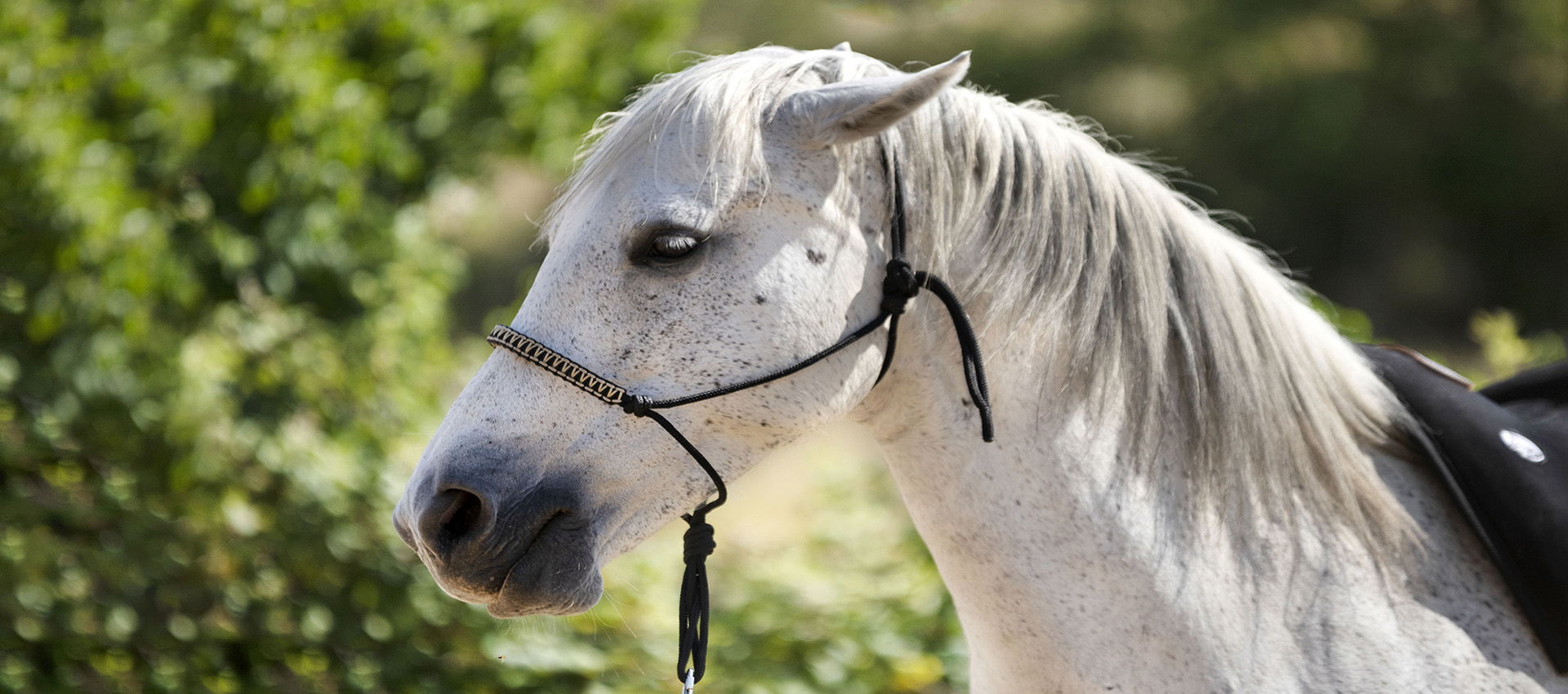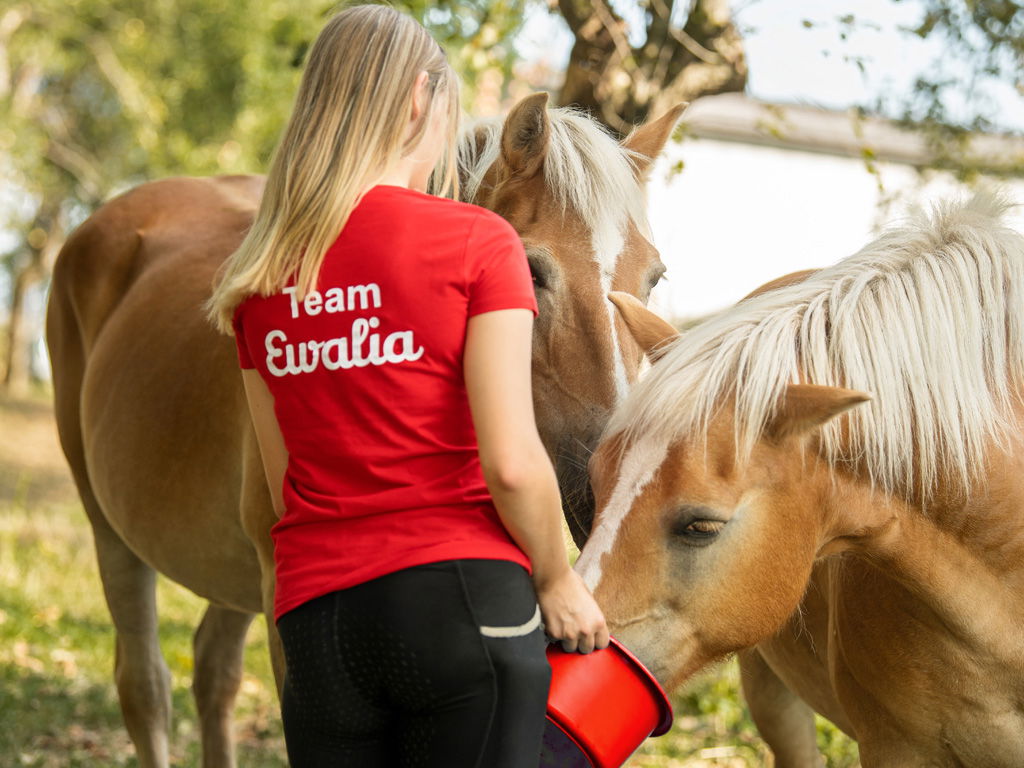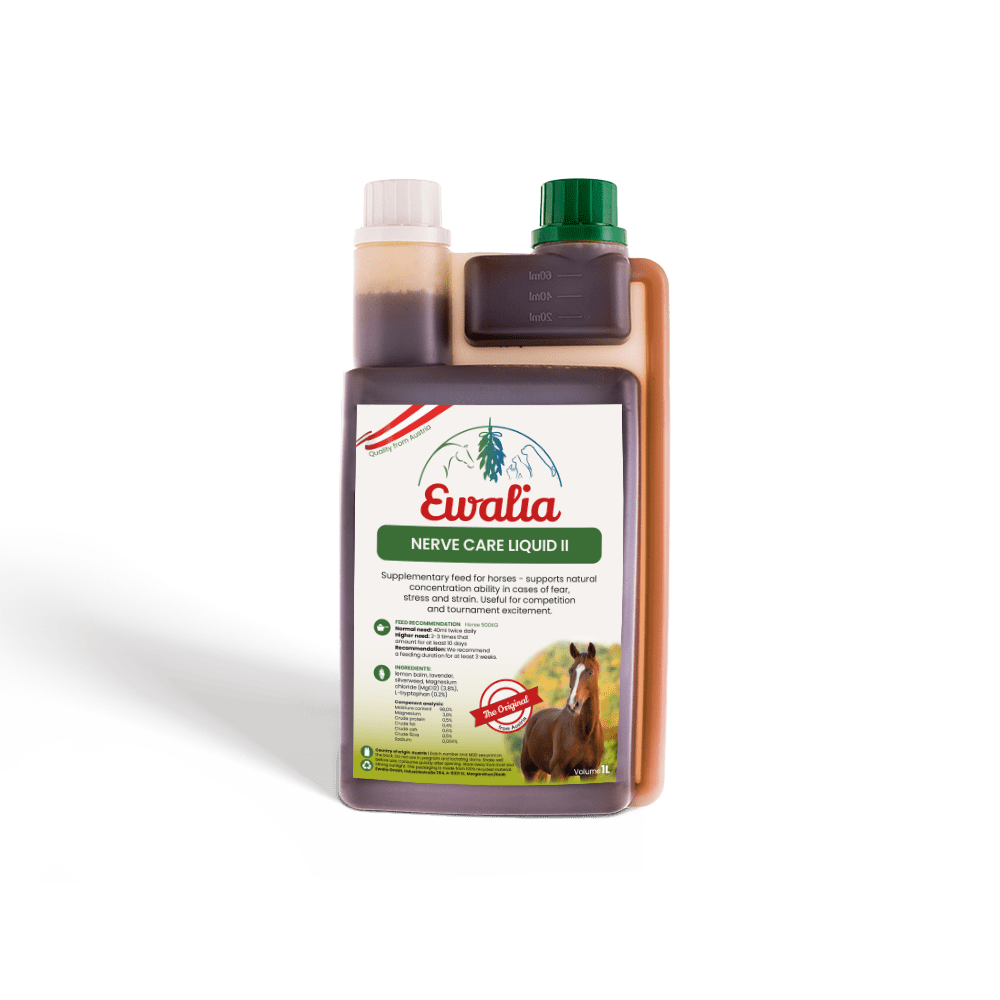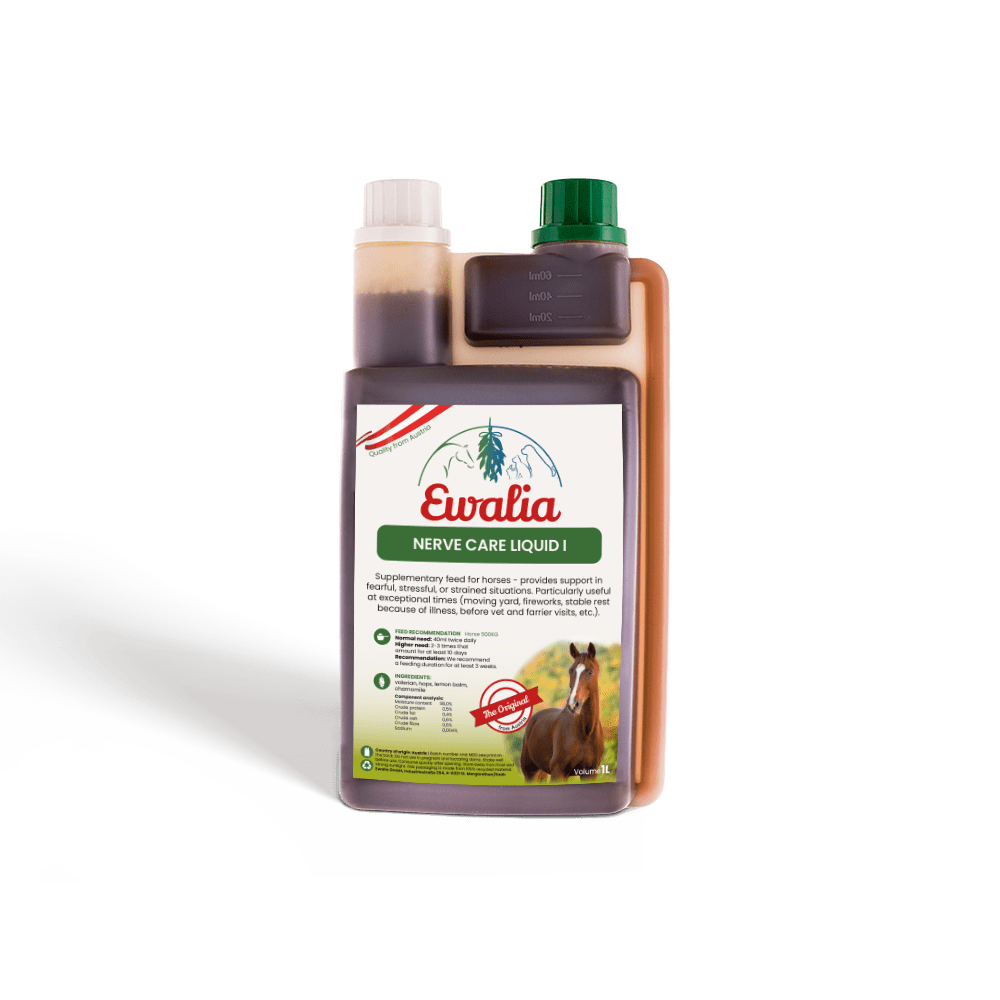Strengthen nerves and reduce stress in anxious horses with herbs

You know those totally chill horses, the ones that wouldn’t bat an eyelash even if a bomb went off next to them? And do you then ask yourself why your own horse regularly drives you crazy, suddenly panicking with every falling leaf? Or is your horse simply the high-strung, nervous type that can’t relax? Stress and anxiety can have a strong impact on a horse’s training and its general well-being. But there’s good news: a natural remedy for stress, tension, nervousness and anxiety. Unsuitable feeds can also cause weak nerves in horses, but you can help your horse by giving it special herbs.
What is equines stress?
Stress is a natural protective mechanism, and no less important than digestion or respiration in mammals. It originally helped animals avoid predators, enemies and dangerous situations, and was crucial to their survival.
Wild animals experience numerous stressors, i.e. factors or triggers to which horses usually react with flight. Wild horses will normally react with fear and flight not only to the appearance of a predator, but also to loud noises, swift movements and unfamiliar situations. Psychological pressure can also lead to physical stress, for example through a sudden separation from the herd. In the wild, this stress ensures survival. Equines possess sophisticated mechanisms which precisely control the body and facilitate flight. Through the movement of flight, the horse’s stress level falls.
The equine autonomic nerve system
The autonomic nerve system (formerly called the vegetative nerve system) is regulated from within the brain and controls many essential bodily functions like respiration and digestion. Two branches of the autonomic nerve system, the sympathetic nervous system and the parasympathetic nervous system, affect different physiological mechanisms. The sympathetic nervous system increases blood circulation to the muscles, elevates respiratory rate and heartbeat and inhibits digestive activity so that the body can react ideally with escape. The parasympathetic nervous system, in contrast, promotes the flow of saliva, digestive activity and elimination.
What are stressors for modern horses?
The modern, domesticated riding horse is rarely exposed to life-threatening stressors, however it perceives different stimuli of the same quality in the same way a wild horse does. Your horse reacts to stress with the same biological mechanisms as its ancestors did. However, because it often cannot escape, for example by galloping away from the source of danger (movement reduces stress), the physical symptoms persist. Hormone levels, which specifically rise during stress, are therefore not sufficiently inhibited due to the lack of movement from flight, and this has several physical consequences. Prolonged stress often leads to gastritis, stomach ulcers, tense muscle, impaired digestion and muscle hypertonia.
There are a number of stressors that are firmly anchored in the horse's biology in addition to triggers such as loud noises, rapid movements, light stimuli and unfamiliar surroundings. For example, horses react to being separated from other horses, unrest amongst the herd, insufficient access to water and food, solitude and performance pressure with mental stress.
What are the consequences of equine stress?
In addition to the sometimes-serious physical repercussions mentioned above, stress will also cause a horse to suffer psychologically, which can lead to poor concentration, overreactions and even "explosive" behaviour that is dangerous for horse and rider. Physically, stress can creep up on a body gradually until it reaches the so-called “point of no return”. This is when the effects of stress cause such physical discomfort that the pain in turn causes more stress, creating a vicious circle which is difficult to break. A typical example of this would be stress-induced stomach issues like stomach ulcers or gastritis.
How can I relieve my horse of stress?
Proper horsekeeping, appropriate exercise, regular check-ups, and proper feeding are all essential to your horse’s well-being. With regard to feeding, you can practically feed your horse to its heart’s content while reducing stress through natural means.
The most important factor is a foundation of high-quality roughage. A concentrate feed and mineral feed selected to meet the horse’s individual requirements are essential. A variety of herbs can provide quick and effective relief from stress. You can help your stressed horse by providing it with calming valerian, hop, and other herbs, which can significantly improve its quality of life and rideability. A horse that is more relaxed will be more open to aids and can focus better on training.
Herbs for nervous horses
Certain herbs have long been known for their natural calming properties and are often used in human and veterinary medicine. The following is a short list of herbs for supplementary feed and liquids – use these to strengthen your horse's nerves and help to reduce stress naturally:
Valerian (Valeriana officinalis L.) - helps combat sleep disorders, tension, nervousness and irritability
Hop (Humulus lupulus) – relieves anxiety, stress, sleep disorders and promotes digestion
Lemon balm (Melissa officinalis L.) – reduces anxiety, tension, stomach aches, also relieves pain and cramping and improves mood
Chamomile (Matricaria chamomilla L.) – for insomnia, also works as a calming, anti-inflammatory tonic
Lavender (Lavendula augustifolia) – fights depression, trouble falling asleep, nervousness, restlessness and stress
As you can see, there are simple and effective ways to help your horse to overcome stress and weak nerves naturally. These, together with proper feeding, training and keeping, can help your tense, nervous and unpredictable darling to become a more reliable and motivated partner.
Author: Hanna Nowak















